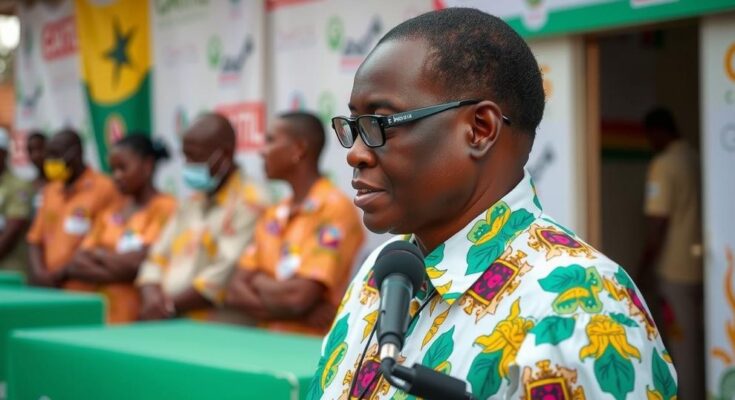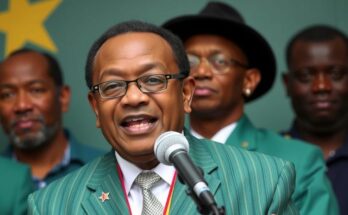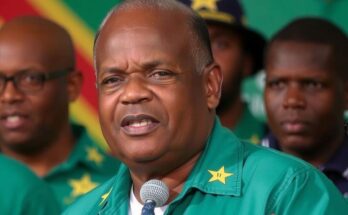On December 7, 2024, Ghanaians participated in presidential and legislative elections marked by a significant economic crisis. With over 18 million registered voters, the elections featured Vice President Mahamudu Bawumia and former President John Dramani Mahama as the main candidates. High inflation and widespread dissatisfaction have ignited concerns over the future leadership, highlighting the pivotal nature of this electoral process.
Polling commenced on December 7, 2024, in Ghana, where citizens participated in presidential and legislative elections amidst the dire backdrop of a significant economic crisis. With approximately 18.7 million registered voters, this election is viewed as a crucial test of democracy in a region troubled by instability. The two leading candidates, Vice President Mahamudu Bawumia of the ruling New Patriotic Party (NPP) and former President John Dramani Mahama of the opposition National Democratic Congress (NDC), present limited alternatives to address the nation’s pressing economic challenges.
Historically known as a model of democratic progress, Ghana has faced accelerating inflation and increasing unemployment, resulting in widespread dissatisfaction among the populace. Afrobarometer reported that 82% of Ghanaians believe the country is heading in the wrong direction. Despite a diverse field of twelve presidential candidates, the election remains a contest primarily between the two major parties, as evidenced by poll results that indicated Mahama might lead with 52.2% against Bawumia’s 41.4%.
Both candidates held their final campaign rallies on Thursday, advocating for their respective parties as the solution to the nation’s economic strife. Bawumia, an economist and former deputy governor of the central bank, promised continuity and economic stabilization, whereas Mahama emphasized a comprehensive reset of governance, economy, and public services. The overall atmosphere in Accra before election day was vibrant, though anxiety lingered over the substantial issues facing voters, notably the struggling economy and the ongoing challenge of illegal gold mining.
As Ghana moves forward with its electoral process, citizens express hope for renewal within a system that has historically thrived on democratic principles. However, the outcome of this election remains uncertain, especially with the economic hurdles that have recently plagued the nation. The ramifications of the choices made will significantly impact the country’s future, as Ghanaians seek stable leadership capable of navigating these formidable challenges, including rampant inflation and illegal mining activity that threatens their natural resources.
Ghana has been recognized as a stable democracy in West Africa, yet it currently faces one of its most serious economic crises. This has led to significant public discontent, mirrored by recent opinion polls indicating that a vast majority of the population perceives the country to be on the wrong track. Historically an economic leader in the region, Ghana has been beset by inflation, unemployment, and issues surrounding illegal gold mining, complicating the political landscape as voters head to the polls. The upcoming elections will serve as a critical junction for addressing these economic concerns and restoring public confidence in the political system.
The elections in Ghana on December 7, 2024, are set against the backdrop of a critical economic crisis, emphasizing the need for effective governance and reform. Voter sentiment illustrates profound dissatisfaction with current leadership, yet the options appear limited. As Ghanaians participate in the electoral process, their choices could determine the future direction of the country amidst substantial economic challenges. The coming days following the elections will reveal whether the elected leadership can forge a path towards stability and growth.
Original Source: apnews.com




